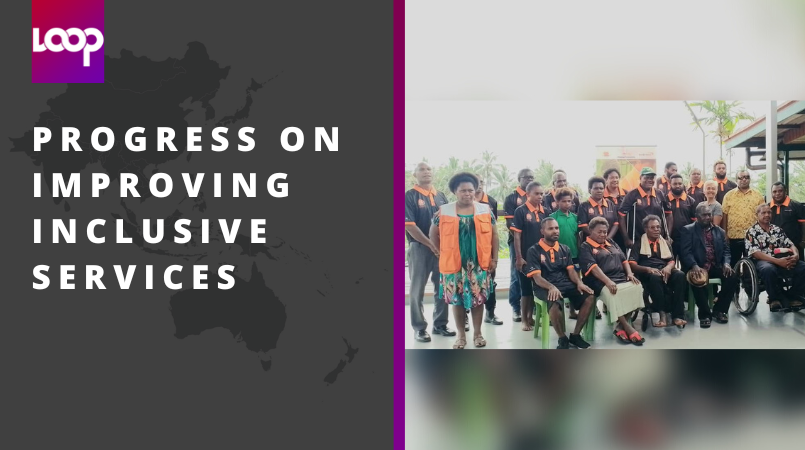
Work is progressing on improving disability services in the country, under the Department for Community Development and Religion (DfCDR).
The assistant director for Disability under the Department, Here Aihi, said this is being progressed with support from partners like World Vision and relevant national government agencies.
Speaking after a recent three-day New Guinea Islands regional Training of Trainers (ToT) workshop on the United Nations Convention on the Rights of Persons with Disability (UNCRPD) in Kokopo, Aihi said this partnership is being implemented through the Real Inclusion Disability Engagement (RIDE) project that is funded by World Vision.
“The RIDE project came about following consultations between the Department and World Vision, with assistance from the Australian government’s Department of Foreign Affairs and Trade (DFAT).
Under a Memorandum of Understanding (MoU) signed between the Department and World Vision, we are now working collaboratively to implement the RIDE project,” he stated.
Aihi said the RIDE Project is aimed at capacitating Organizations for Persons with Disability (OPD) in the provinces, by building the capacity of OPDs and OPD leaders to raise their level of understanding of the UNCRPD.
“After domesticating the UNCRPD, we came up with the National Policy on Disability, and together with the Constitutional and Law Reform Commission (CLRC) and the Department of Justice and Attorney General (DJAG), the Department has worked on the Disability Services Bill which is at the political level for vetting before it goes through parliament.”
The NGI ToT held last week in Kokopo City was the last leg of the regional workshops, and was aimed at getting more support from all stakeholders – both the OPDs and the provincial governments through the Community Development sector officers – to push the agenda on the UNCRPD.
“So far, only the Autonomous Region of Bougainville has a provincial Disability Policy adapted from the National Disability Policy, while East New Britain Province has one in draft form. New Ireland, Manus and West New Britain are still to set up a provincial policy.”
Aihi said once the Disability Services Bill is enacted into a law, it will affect other existing laws to ensure that they comply with the Disability Services Bill, as there will be penalties imposed on those breaching this law.
He outlined that the UNCRPD is an international treaty signed by the PNG government in 2013, and after adapting it, the responsible government agency – the the Department for Community Development and Religion – came up with the national disability policy.
The Disability Services Bill aims to domesticate this international treaty, so that the rights of People Living With Disabilities are realised.
